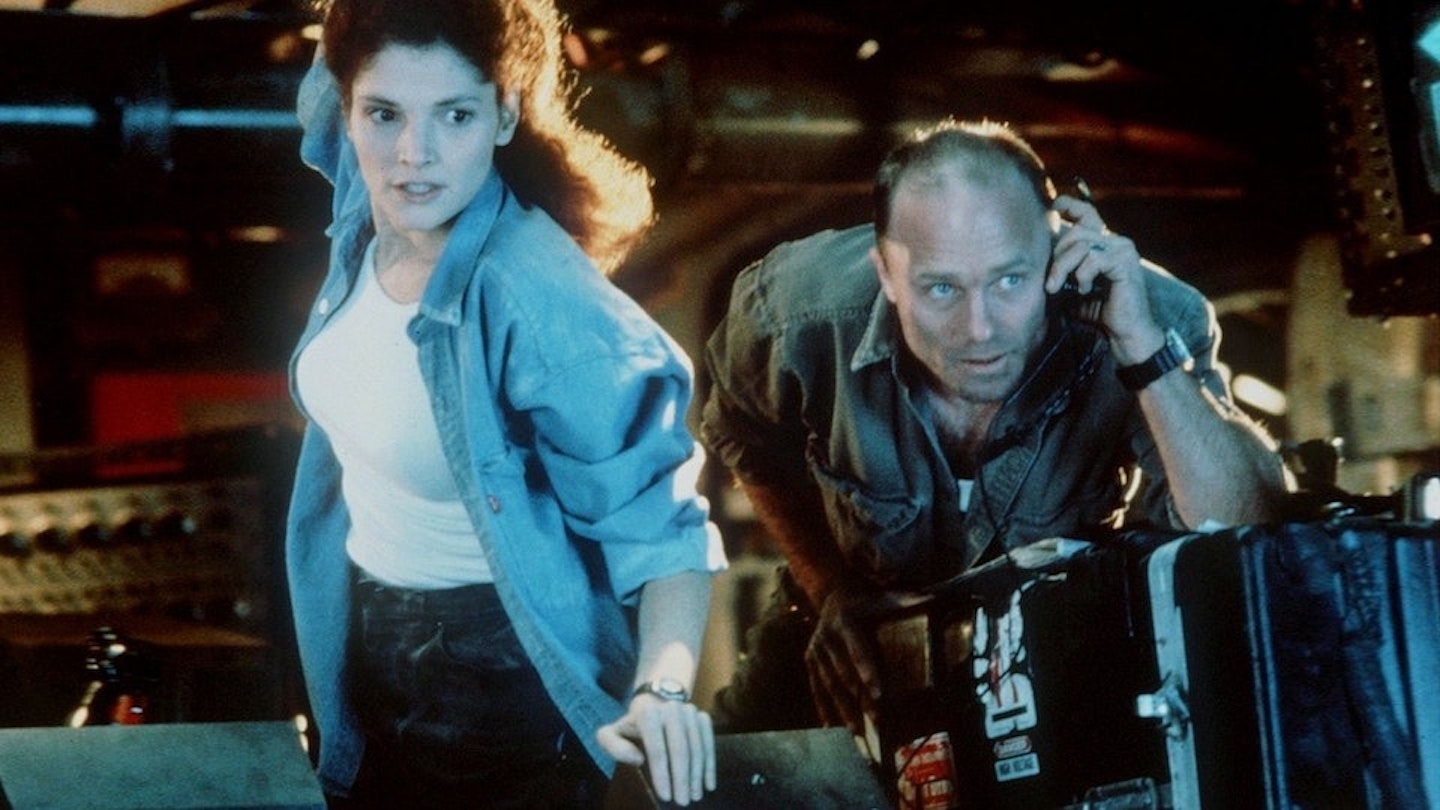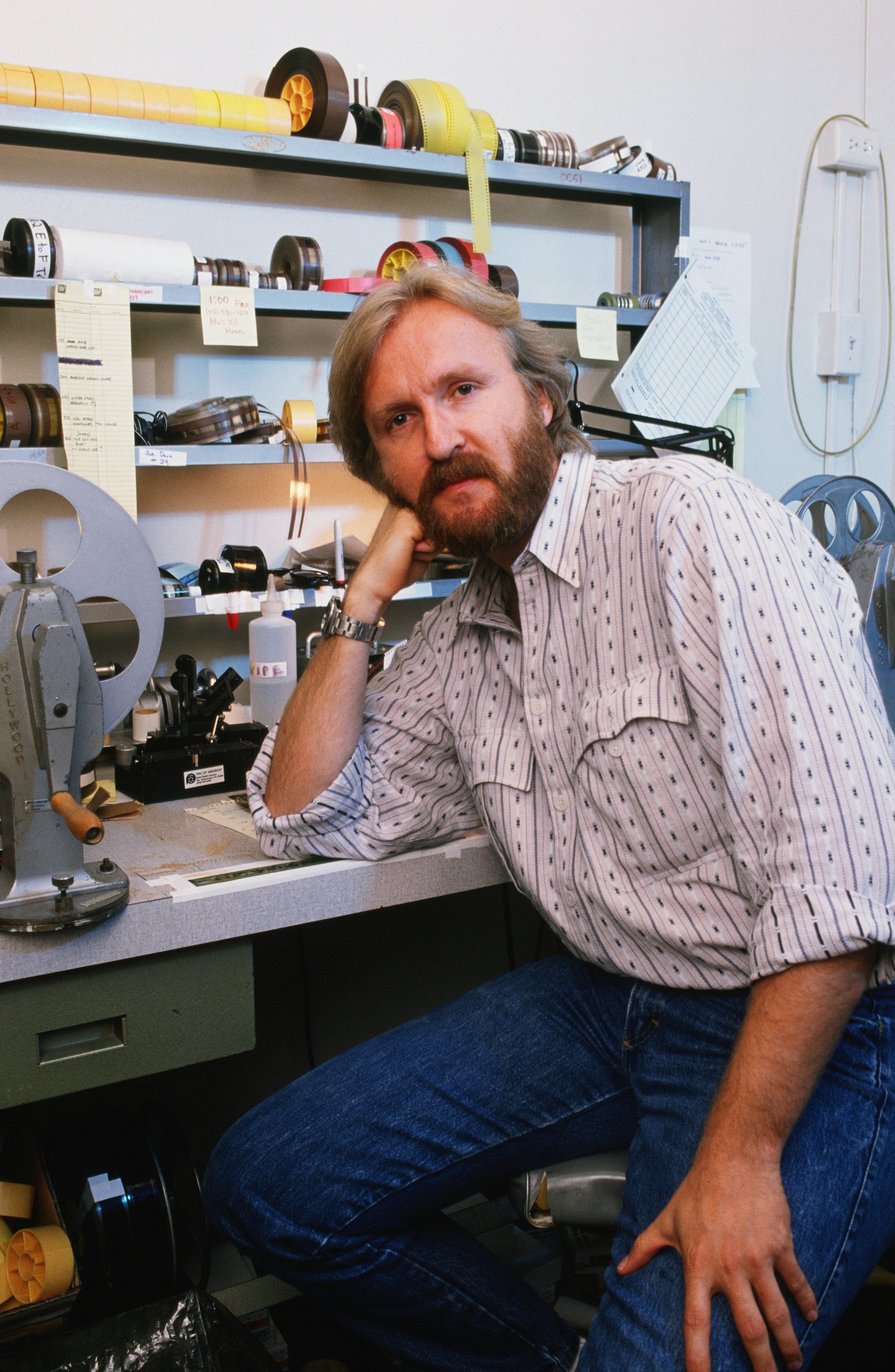
Colin Trevorrow has a fan theory. What if the sci-fi world of Pandora is connected to the 1989 film The Abyss? Earlier this year, James Cameron dismissed the idea, telling Trevorrow there’s no literal connection. “Just the universe of my brain,” Cameron said. “And obviously I love bioluminescence... That’s certainly what drove the creation of Avatar.”
This characteristically matter-of-fact answer from Cameron conceals a deeper truth: The Abyss might be Cameron’s most original film.
If you thought you’d seen a stressful underwater movie before The Abyss, you’d be wrong. To date, there is no tenser time spent beneath the waves. It’s difficult to explain the plot without spoiling it, but the movie is propelled by twists and turns, nail-biting revelations, and the perpetual threat of water crushing and drowning our heroes.
Much has been written about the ground-breaking special effects. In fact, if you Google the film, one of the first things you’ll find is the “water tentacle” scene where an underwater alien uses fluid to mimic a human face. The morphing effect predates a similar liquid metal visual in Cameron’s 1992 film Terminator 2: Judgement Day.
But all the technical talk tragically overshadows why The Abyss is great. Of all Cameron’s films, this is the one most like Aliens, in that it captures just how emotionally affecting a sci-fi story can be when it's about a group of people trapped in a hostile environment.
Starring Ed Harris, Mary Elizabeth Mastrantonio, and Michael Biehn, The Abyss tells the story of an undersea drilling rig suddenly tasked with investigating the oceanic version of a UFO. Cameron cleverly pairs ex-husband "Bud" Brigman (Harris) with his ex-wife Linsdey Brigman (Mastrantonio), which immediately gives the film grounded emotional stakes. This narrative trick works so well, it’s almost possible to imagine that Denis Villeneuve borrowed a similar set-up for 2016’s Arrival.
But what makes The Abyss truly great is how it elevates a classic sci-fi premise: What if an advanced intelligence encountered the arms races happening around the world, and judged humanity for them?

“It was my version of The Day The Earth Stood Still,” Cameron said in Empire. “A function of my Cold War angst, and a comment on how an alien super-intelligence might judge rather harshly the way we mistreat each other and our beautiful world.”
Unlike time travel paradoxes involving killer robots (The Terminator) or epic stories of outsiders becoming the salvation of a peaceful planet (Avatar), The Abyss borrows from sci-fi tropes but completely changes its tone with a simple shift in setting. Cameron’s obsession with the ocean and filming things underwater is well-known now. But in The Abyss this novelty sets the movie apart from his other films, and from alien movies in general.
Nothing about The Abyss contains the same indulgence or over-the-top quality of Cameron’s other blockbusters. It’s tempting to say Aliens is still his best, but it benefits from piggybacking off Ridley Scott’s 1979 original. The Abyss, meanwhile, is more original than either Terminator, and quieter and less ostentatious than either Avatar.
The Abyss is a humbler kind of Cameron movie, and it’s aged well. Tragically, it isn’t streaming anywhere, which means to watch if you’ll have to track down a DVD or Blu-ray. But the effort is worth it. Watching The Abyss will remind you that, in 1989, James Cameron wasn’t Hollywood royalty. He was just a man making movies unlike anything audiences had seen before.







